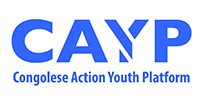
In July 2022, when Ya Kil (CAYP member and Genocost coordinator) sat down with Boniface Musavuli, an expert on security and human rights issues in the Great Lakes region of Africa, for an insightful interview on GenoCost Talk, the complexities of the conflict in Eastern Congo were brought into sharp focus. Musavuli, a jurist, political analyst, and author, delved deep into the origins, motivations, and persistent challenges posed by the M23 rebellion, a group that has played a significant role in the ongoing conflict. This conversation not only sheds light on the intricacies of the M23’s involvement but also on the broader security situation in the region, offering a comprehensive overview that we aim to unpack in this blog. You can watch the whole interview on YouTube https://www.youtube.com/watch?v=JA9BU2LA-qU&t=69s
Here, we have translated and summarize the conversation to educate and inspire action by spreading awareness about the M23 and the security situation in Eastern Congo.
Origins and Allegiances of the M23
The M23, known formally as the Movement of March 23rd, is named after the peace agreement of March 23, 2009, which was supposed to integrate rebels into the Congolese national army. Musavuli describes the M23 as an armed movement closely linked with Rwanda, portraying it as an extension of Rwandan interests in the Congo. The group’s foundation traces back to the discontent over the implementation of the agreements signed with the government, but as Musavuli elucidates, the M23’s story is deeply entangled with Rwanda’s geopolitical ambitions.
The Rwandan Connection and the M23’s Demands
A significant portion of the interview with Musavuli highlights the M23’s intricate connections to Rwanda, revealing a pattern of Rwandan involvement in Congolese affairs through various rebel groups over the years. From AFDL to CNDP, the M23 is only a new acronym for the “so called” armed forces for the liberation of Congo. The demands of the M23, including amnesty for its fighters, the integration of its forces into the Congolese military with maintained ranks, and the return of Congolese refugees from neighbouring countries, are discussed in the video. However, Musavuli points out that these demands serve as a façade for deeper Rwandan interests in destabilizing Eastern Congo and exploiting its resources.
The Persistent Threat of the M23
Despite suffering defeats and facing international condemnation, the M23 continues to represent a significant security threat in Eastern Congo. Musavuli emphasizes the group’s resilience, attributed to ongoing Rwandan support and the broader international backing Rwanda receives. This external support enables the M23 to regroup and continue its operations, undermining efforts to stabilize the region.
Towards a Solution
Musavuli suggests that the path to resolving the conflict involves both internal reforms within the Congo and external pressure on Rwanda and its allies. He highlights the growing awareness among Congolese citizens of the external factors exacerbating the conflict and calls for a unified stance against aggression. The interview underscores the importance of international support for Congolese sovereignty and the implementation of effective mechanisms to address the root causes of the conflict.
Your Role in Advocating for Peace
This conversation between Ya Kil and Boniface Musavuli is not just an academic discussion; it is a call to action. By understanding the dynamics at play in Eastern Congo and the role of groups like the M23, you can help spread awareness and advocate for change. Engaging in informed discussions, supporting organizations working towards peace in the region like AJPC (Association des jeunes pour la promotion de la culture), and calling on your government to take a stand against external interference in Congo are steps everyone can take.
In conclusion, the insights provided by Boniface Musavuli offer a critical perspective on the ongoing conflict in Eastern Congo and the role of the M23. This knowledge is not just for contemplation but for action. By educating others and advocating for peace, we contribute to a global effort to address the complexities of the conflict and support the Congolese people in their quest for stability and sovereignty. The interview on GenoCost Talk serves as a reminder of the power of informed dialogue and the importance of international solidarity in the face of injustice and unrest.


Leave a comment